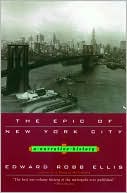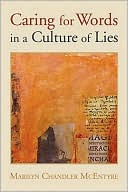The Theme of Alienation in 20th Century Irish LiteratureRead "The Dead"
here and "Lake Isle of Innisfree"
here.

The twentieth century saw a new modernist strain in literature. Among its various characteristics, Modernism emphasized the alienation of certain individuals within an industrialized, urban world. While unique in certain aspects, this feature was merely an extension of its predecessor Romanticism. This earlier philosophy had developed the idea of the noble savage – how man is sinless at birth, but gradually the industrialized world corrupts him. Only in Nature can man remain perfect. In “The Dead,” James Joyce explores the effects of urbanization upon an individual; conversely, William Butler Yeats in his poem “The Lake Isle of Innisfree” contrasts how a return to Nature can essentially purify and restore peace to a person’s soul.
Famed for his complex character studies and utilization of the stream-of-consciousness technique, Joyce is one of the most famous writers of the Modernist era and of Ireland. His collection of short stories,
The Dubliners, displays his immense talent. “The Dead” is the last story in this collection and perhaps the most famous and the most powerful. The main character is a young married man, Gabriel, who struggles with his identity as an Irishman during that country’s political upheavals. At a dinner party, one of the guests invites him to visit the Aran Isles on the west coast of Ireland. Gabriel protests that he would rather go to France or Germany and then admits in an outburst of passion, “To tell you the truth….I’m sick of my own country, sick of it!” (2515). His disgust for his homeland, however, stems from his disconnection with his Irish heritage, rather than a true dissatisfaction with the country. Indeed, his answer was provoked after the dinner guest had exclaimed, “And haven’t you your own land to visit….that you know nothing of, your own people, and your own country?” (2515). Later on, Gabriel continues to evince his anger over the loss of his heritage by declaring in his speech,
But we are living in a skeptical and, if I may use the phrase, a thought-tormented age: and sometimes I fear that this new generation, educated or hypereducated as it is, will lack those qualities of humanity, of hospitality, of kindly humor which belonged to an older day” (2523).
The Irish heritage primarily centered on the importance of the land, for the Irish had always been farmers. By living in the city of Dublin, Gabriel is alienated from the real Ireland of lush green fields and rolling hills. His schooling has drowned him in the intellectual and philosophical thought of his age, but has given him nothing of his own culture to hold onto. The tension grows when one of the guests begins to sing an old Irish song, awakening strange passions within Gabriel. He knows that the song has some sort of symbolic meaning, but he cannot quite discern what it is. After returning home, his wife begins to tell him of a boy she had known long ago who used to sing the same song to her: a country boy who died of love for her. As he listens to his wife’s story, he suddenly realizes that he has never truly loved her before – he realizes the wall that seems to stand between him and her, between him and the old Ireland.
His own identity was fading out into a grey impalpable world: the solid world itself which these dead had one time reared and lived in was dissolving and dwindling (2534).
The country boy symbolizes the purity of Nature, the purity of the true, old Ireland. Gabriel is the new Ireland, oppressed by British rule and raising children who know only of the present urbanization. This last quote shows that Gabriel has no identity in this urban world and no one ever can. Only in that old Ireland could the qualities of humanity and kindly humor exist; only in that old Ireland could he have truly loved his wife as the country boy did.
Romanticism probably influenced Yeats more than it did Joyce. Indeed, Yeats drew his poetic inspiration from Shelley and Blake, even editing several of Blake’s poems. “The Lake Isle of Innisfree” (Innisfree is a small island in western Ireland) almost seems like a tribute to these earlier writers with its idyllic atmosphere. It describes a person in either a town or city, yearning to “arise and go /…to Innisfree” (1). The person of the poem is not alienated from Nature like Gabriel, however, but rather he is alienated from the city where he lives. The reason why he decides to return to Nature is because he cannot escape from it.

I will arise and go now, for always night and day
I hear lake water lapping with low sounds by the shore;
While I stand on the roadway, or on the pavements grey,
I hear it in the deep heart’s core (9-12).
Gabriel was faced with a similar dilemma in “The Dead.” He also was constantly haunted by this sound “in the deep heart’s core” but he decided that there was no solution to his problem. Gradually, this old world of Nature would fade away and people would be left hopeless and in despair. Yeats, however, still shares a glimmer of hope. Nature is not destroyed and there are still places that will welcome the solitary traveler, places like Innisfree and Gabriel’s Aran Isles. Just as Gabriel had drawn the conclusion that only in the old Ireland could he have truly loved his wife, so the speaker in this poem declares that he can only find peace in Innisfree, “for peace comes dropping slow, / Dropping from the veils of the morning to where the cricket sings” (5-6). But his peace is truly tangible for his Innisfree exists whereas Gabriel’s old Ireland did not.
The word ‘alienation’ often has bad connotations, but the Merriam Webster dictionary defines it simply as “a withdrawing of a person's affections from an object or position of former attachment.” Romanticism showed that there were two types of alienation in mankind, one that was bad and the other good, and no middle ground in between. The Modernists delved even more deeply into these themes, oftentimes reaching very different conclusions as Joyce and Yeats did. To many, the past was lost and irrecoverable. Like Gabriel, they could only picture themselves as shadowy ghosts living in a world merely the faint outline of its lost glory. But others, like Yeats, still rejoiced in the hope that was offered to them – for the beauty and peace of Nature could never fade as long as it abided in the “deep heart’s core.”
Works CitedJoyce, James. “The Dead.” 1914. The Norton Anthology of English Literature: The Major Authors. Stephen Greenblatt, General Editor. 8th edition. New York: W. W. Norton & Company, Inc., 2006, pgs. 2507-2534.
Yeat, William Butler. “The Lake Isle of Innisfree.” 1890. The Norton Anthology of English Literature: The Major Authors. Stephen Greenblatt, General Editor. 8th edition. New York: W. W. Norton & Company, Inc., 2006, pg. 2391.
Labels: book reviews, bookish musings, explication de texte
Posted by Nicole Bianchi at 12:02 PM
|

![]()






 This is life seen through the eyes of a writer. A blog that critically examines literature, music, and film. NB, initials which coincidently coinside with the Latin words "nota bene" (mark well), belong to the blog poster, a bibliophile who likes to haunt libraries and book stores, talk about all things bookish, and ramble at any length on things regarding literature. Many of the articles posted here were written as essays for high school and college.
This is life seen through the eyes of a writer. A blog that critically examines literature, music, and film. NB, initials which coincidently coinside with the Latin words "nota bene" (mark well), belong to the blog poster, a bibliophile who likes to haunt libraries and book stores, talk about all things bookish, and ramble at any length on things regarding literature. Many of the articles posted here were written as essays for high school and college.





